イベント&アクティビティ
Emperor Hirohito from the Pacific War to the Cold War
Emperor Showa, better known in the English-speaking world as Emperor Hirohito, has been one of the most controversial figures in the history of the Pacific War. He was both sovereign of the state and commander in chief of the Japanese imperial forces; but above all, he was the manifestation of divinity and a symbol of the national and cultural identity of Japan. Yet under the Allied occupation the emperor was spared from the Tokyo war crimes trial and continued to reign in postwar Japan until his death in 1989 as “the symbol of the state and of the unity of the people” under the new democratic constitution written by the U.S. occupiers.
This talk will examine the extraordinary transformation of Emperor Hirohito from a divine monarch during the Pacific War to a humanized symbolic monarch supposedly with no political power during the occupation years (1945-1952). The talk will focus on the paradoxical role Emperor Hirohito played at home and abroad as tension between the United States and the Soviet Union escalated into the Cold War in East Asia.
Effects of Zero Interest Rate Monetary Policy on Banks and Society
In Japan, zero interest rate monetary policy and unconventional easing measures have prevailed for almost two decades. It is possible that these policies have had incisive side-effects aside from effects on inflation (expectations).
Our roundtable will focus on the implications of these measures for banks and society by way of macro-economic theory as well as empirical evidence.
Between Nostalgia and Utopia: Alternative Lifestyles in Rural Japan
The Japanese countryside has for decades seen its population shrinking and aging. But in recent years some regions have experienced an influx of new residents, urban-to-rural migrants, looking for a new life in the Japanese countryside.
This so-called I-turn trend has been increasingly covered by the popular media. Magazines and websites providing information and support for people interested in moving to rural areas suggest that life in the countryside promises a meaningful job, a good work-life-balance, a life close to nature and a small, supportive community. They evoke an image of a nostalgic picturesque ‘homeland’ (furusato), where an ‘old Japanese way of life’ has been preserved. But what story does the individual I-turner tell?
日独比較コーポレート・ガバナンス
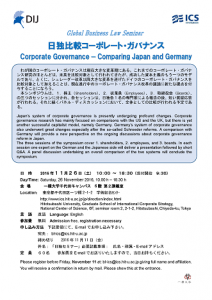
わが国のコーポレート・ガバナンスは現在大きな変革期にある。これまでのコーポレート・ガバナンス研究のほとんどは、米英を比較対象として行われてきたが、成功した資本主義のもう一つのモデルであり、とくに、シュレーダー改革以降大きな変革を遂げたドイツのコーポレート・ガバナンスを比較対象として加えることは、現在進行中のコーポレート・ガバナンス改革の議論に新たな視点を付与することになろう。
本シンポジウムは、1.株主(Shareholders)、2.従業員(Employees)、3.取締役会(Boards)、の三つのセッションに分かれ、各セッションは、日独各1名の専門家による報告の後、短い質疑応答が行われる。それに続くパネル・ディスカッションにおいて、全体としての比較が行われる予定である。
日時:
2016年11月26日(土) | 10:00 ~ 18:30 (受付開始 9:30)
締め切り:
2016年11月11日(金)
WeberWorldCafé: Diversity – Limits and Opportunities
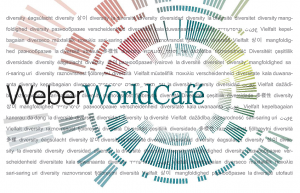
The WeberWorldCafé is an interactive, biannual event format that brings together researchers and practitioners from various disciplines and regions who meet and exchange their thoughts in a relaxed, coffeehouse-like atmosphere.
To enrich the discussions we particularly invite students, young scholars and the interested public to participate in the talks.
Scheduled:
November 24, 2016 | 3:00 P.M. – 6:00 P.M.
Registration deadline:
November 22, 2016
The Relevance of Area Studies for the Sciences and Public Policy: Examples from Europe & Asia
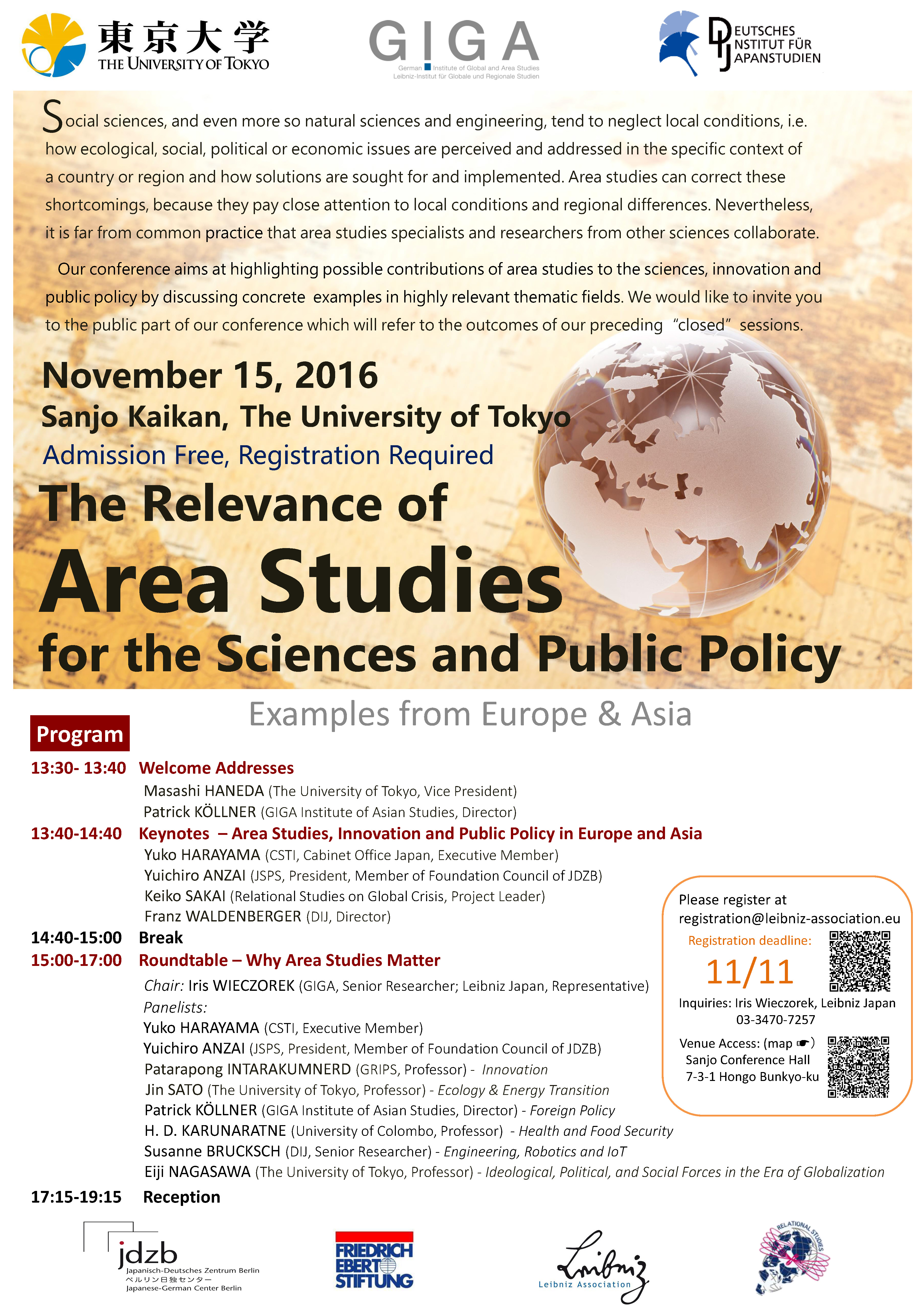 Social sciences, and even more so natural sciences and engineering, tend to neglect local conditions, i.e. how ecological, social, political or economic issues are perceived and addressed in the specific context of a country or region and how solutions are sought for and implemented.
Social sciences, and even more so natural sciences and engineering, tend to neglect local conditions, i.e. how ecological, social, political or economic issues are perceived and addressed in the specific context of a country or region and how solutions are sought for and implemented.
Our conference aims at highlighting possible contributions of area studies to the sciences, innovation and public policy by discussing concrete examples in highly relevant thematic fields. We would like to invite you to the public part of our conference which will refer to the outcomes of our preceding “closed” sessions.
Scheduled:
November 15, 2016 | 1:30 P.M. – 5:00 P.M.
Registration deadline:
November 11, 2016
Victimhood Nationalism in the Transnational Memory Space
‘Victimhood nationalism’ is a working hypothesis to explicate competing national memories over the historical position of victims in coming to terms with the past. The hereditary memory of victimhood consolidates the national solidarity beyond generations and justifies nationalism by endowing the victimized nation with the moral sympathy and historical authenticity. Without a reflection on victimhood nationalism, the postwar Vergangenheitsbewaeltigung (‘coming to terms with the past’) cannot be properly grasped.
The talk by Professor Lim will be followed by comments by Professor Horvat before the floor will be opened to the audience for a Q&A session.
Scheduled:
November 10, 2016 | 6:30 P.M. – 8:00 P.M.
Speakers:
Jie-Hyun Lim, Sogang University Seoul
Andrew Horvat, Josai International University
日独シンポジウム 温暖化対策と地方創生
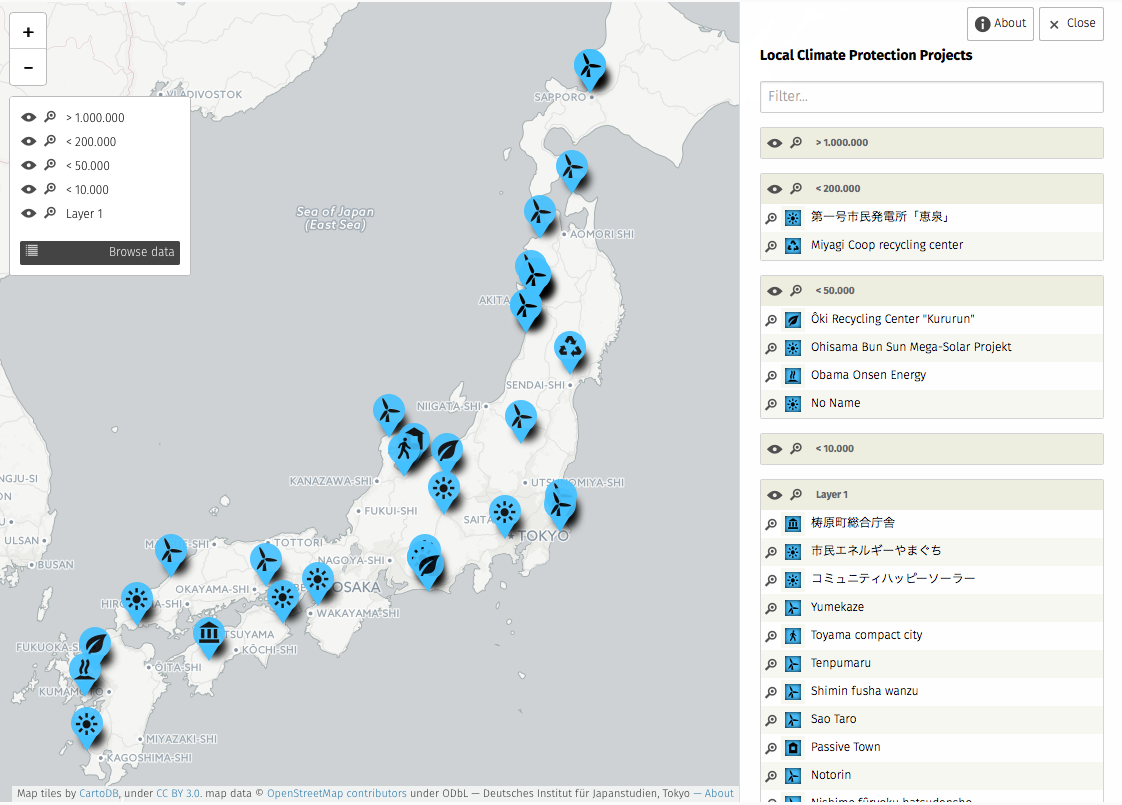 日本とドイツは、温暖化対策において緊密な協力関係にあります。この関係の強化に向けた両国の決意は、G7富山環境大臣会合や、本年5月に日本環境省とドイツ連邦環境・自然保護・建設・原子炉安全省の間で署名された「脱炭素社会に向けた低炭素技術普及を推進するための二国間協力に関する共同声明」において、明確に示されました。
日本とドイツは、温暖化対策において緊密な協力関係にあります。この関係の強化に向けた両国の決意は、G7富山環境大臣会合や、本年5月に日本環境省とドイツ連邦環境・自然保護・建設・原子炉安全省の間で署名された「脱炭素社会に向けた低炭素技術普及を推進するための二国間協力に関する共同声明」において、明確に示されました。
気候保護政策には、国際的な調整が欠かせない一方で、具体的な対策の実現には、多くの場合自治体と市民の積極的な活動が鍵となります。



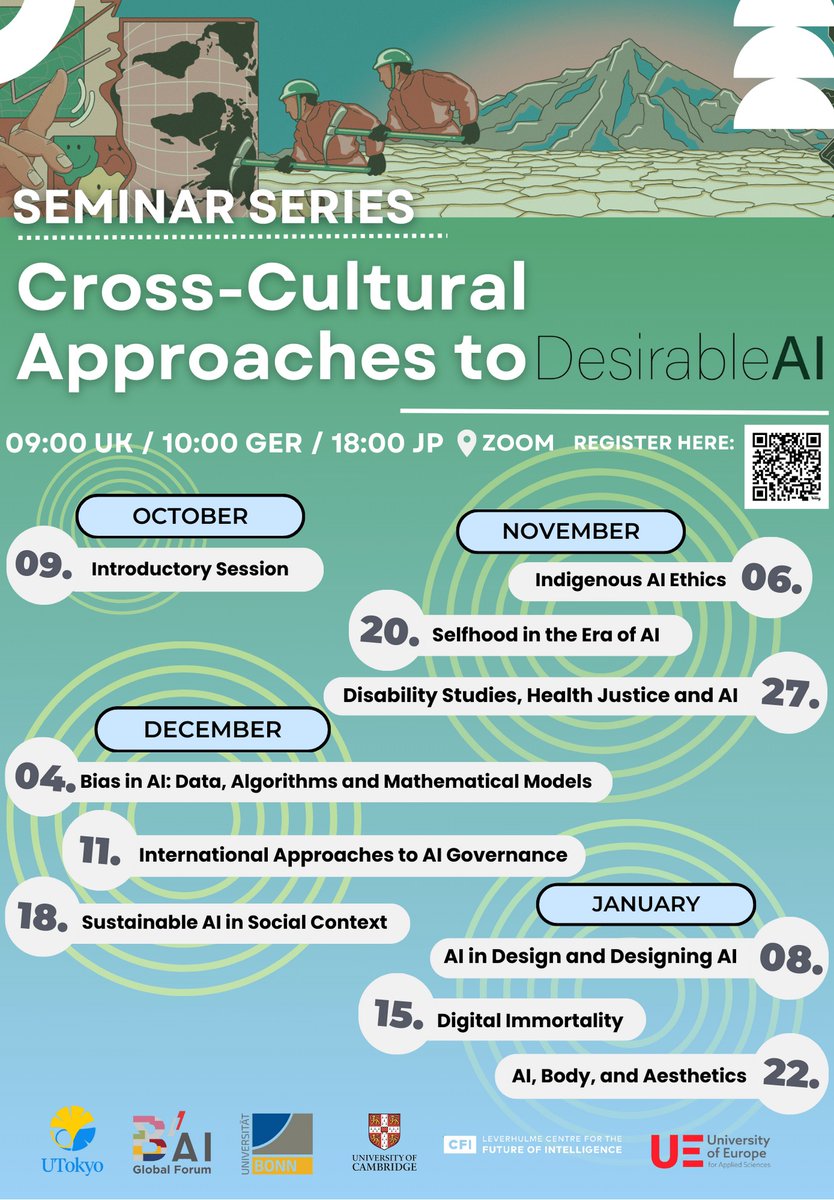




 Open Access
Open Access
